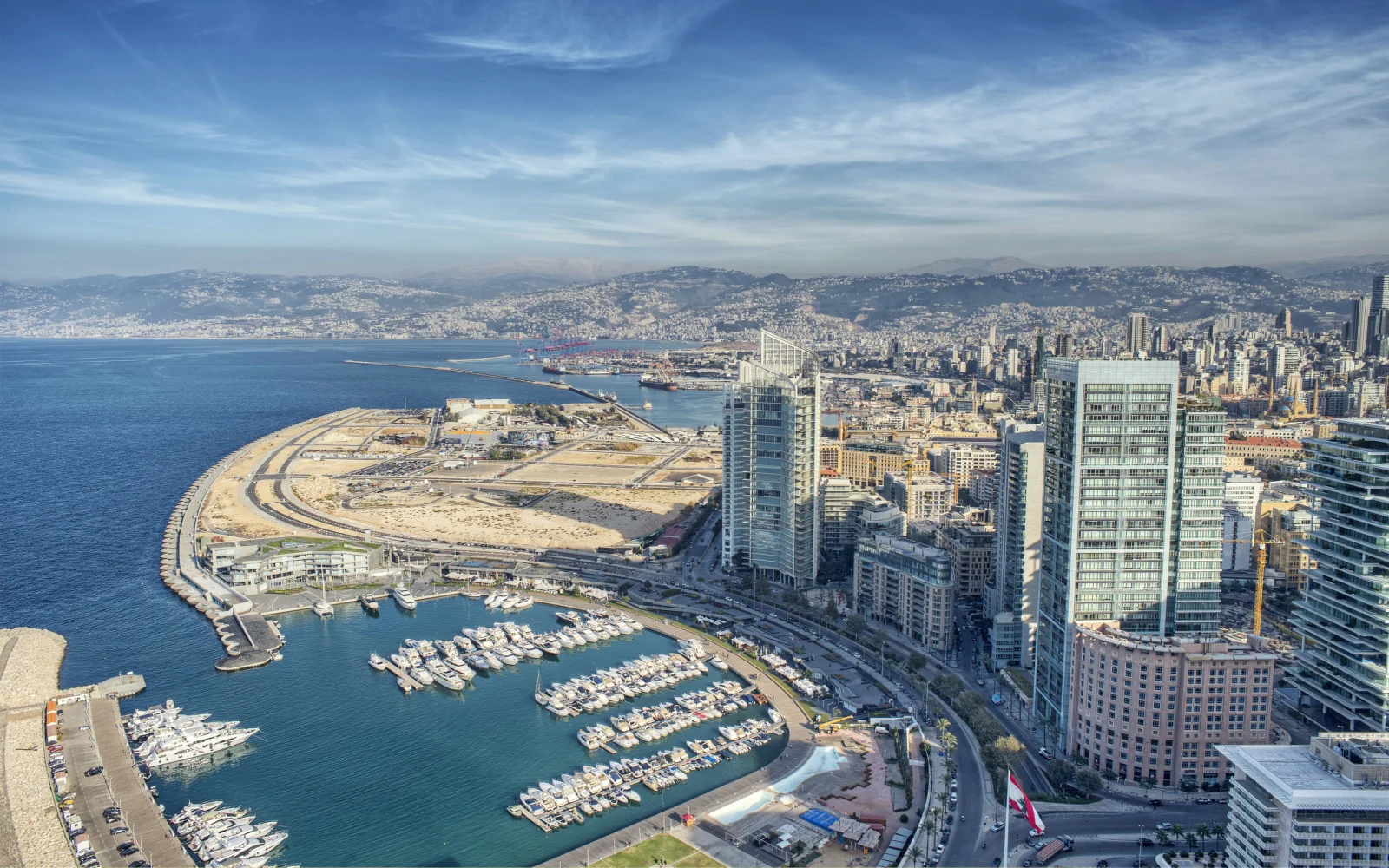Is Lebanon safe to visit in 2026?
Lebanon is currently facing significant challenges, including political instability, a struggling economy, and a rise in crime rates. Visitors should exercise caution, stay informed about the situation, and consider the potential risks before planning a trip.
Beautiful Lebanon on the Eastern Mediterranean proves that one country can have it all. There is almost no other place in the world where you can spend the morning skiing on Mount Lebanon and the afternoon on the beach by the Mediterranean.
Besides beautiful nature, Lebanon also has thousands of years of history. It is one of the oldest inhabited places in the world (one of its cities, Byblos, was established around 5,000 BCE and is still inhabited today).
Visitors can take in Phoenician ruins, Greek and Roman temples, medieval Arab cities, and a vibrant modern culture featuring some of the best food, music, and coffee culture in the world.
There is so much to see and do in Lebanon, but the country has had a tumultuous recent history and political situation. Many tourists want to see all of Lebanon’s sites but are nervous about whether the situation in Lebanon is safe enough for them to visit.
But don’t worry — our travel experts have done the hard work for you. Keep reading for everything you need to know about the practicalities of visiting Lebanon, from crime rates to the political situation.
Is Lebanon Safe to Visit?
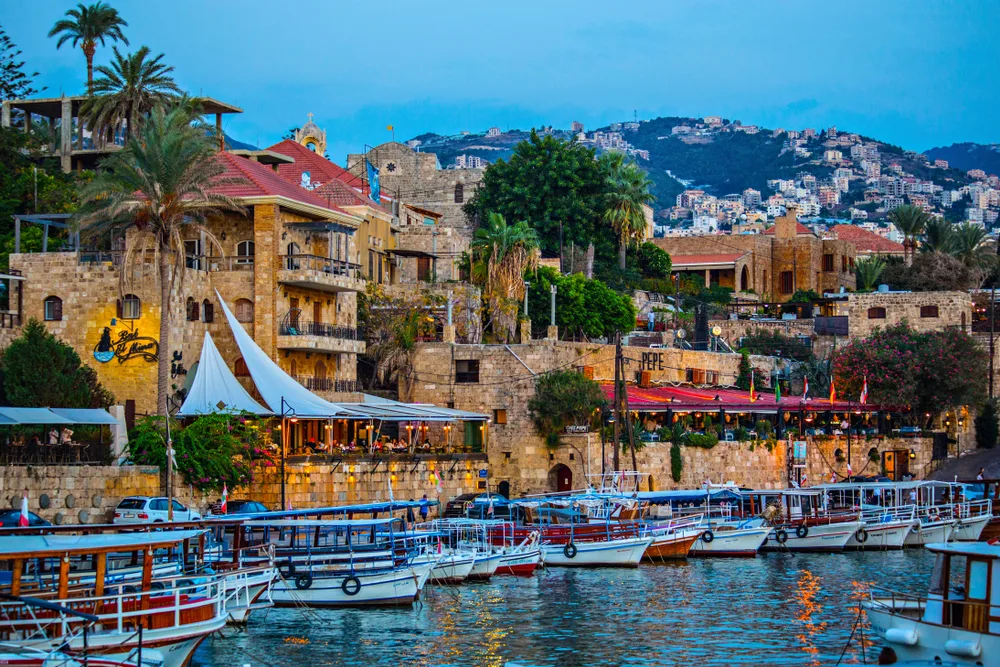
Historical houses and boats in the old port of Byblos, Lebanon in October 2018/Sun_Shine/Shutterstock
Visiting Lebanon requires a certain degree of caution for all visitors. The country has a high degree of political instability due to the legacies of the civil war and the current economic situation.
The current economic instability also empowers crime, including serious crimes such as terrorism. Foreign governments issue varying degrees of travel advice for Lebanon.
The United States is perhaps the strictest, telling its citizens to reconsider travel altogether to the country due to political instability, crime, and terrorism. Other countries are less nervous.
For example, Canada tells its citizens to exercise a high degree of caution in Lebanon and avoid certain regions but that they should still travel there. The scars of the Lebanese Civil War still haven’t gone away and affect the security situation to this day.
The war formally lasted for over a decade, from 1975 to 1990, but the effects have lasted for much longer.
The conflict mostly operated along sectarian lines, and the result is that even post-war Lebanon is heavily divided among sectarian lines such as Maronite Christian, Shi’ite Muslim, Sunni Muslim, and Druze.
After the war, Lebanon was occupied by Syria for over a decade. The effects of the civil war are long-lasting. It killed many people and injured and displaced many others.
The agreement that ended the war, the Taif Agreement, divided up government power according to ethnic groups, which ensures that sectarianism continues to dominate Lebanese politics. The power vacuum during and after the civil war also allowed militia groups such as Hezbollah to flourish.
Hezbollah is the most powerful militia group still active in Lebanon and has de facto control over parts of the country, including southern Beirut.
The recent economic crisis, exacerbated by the explosion in 2020 in the Beirut port, has led to several years of hardship and political unrest in Lebanon. The World Bank characterizes the current crisis as the most devastating in Lebanon’s modern history.
For several years, Lebanese people have faced shortages or price hikes of important goods, including food, fuel, women’s hygiene products, and medicine.
The result has been political unrest, including many street protests, and even more aggressive incidents where people held up banks to access their own money (Lebanese banks were not allowing customers to withdraw their own money held in foreign currencies).
The effects of this crisis primarily affect local Lebanese people, but you should be aware of the implications before you go, as you might run into them as well. Bring basic medications with you, as shortages affect foreigners as well.
If you see a protest, don’t join in, as they turn violent when police clash with protesters. The civil war is still a sensitive topic for many Lebanese, so don’t start sensitive conversations unless your new friends bring it up first.
The unstable political situation has also increased the incidence of crime in Lebanon. Common crimes include:
- Pickpocketing
- Bag snatching and other petty theft
- Scams
- Fraud
- Terrorism
- Kidnapping
Lebanon does not have a very high crime rate, but these crimes exist, and they affect foreigners. Make sure that you exercise basic precautions as you travel around Lebanon.
Crime in Lebanon
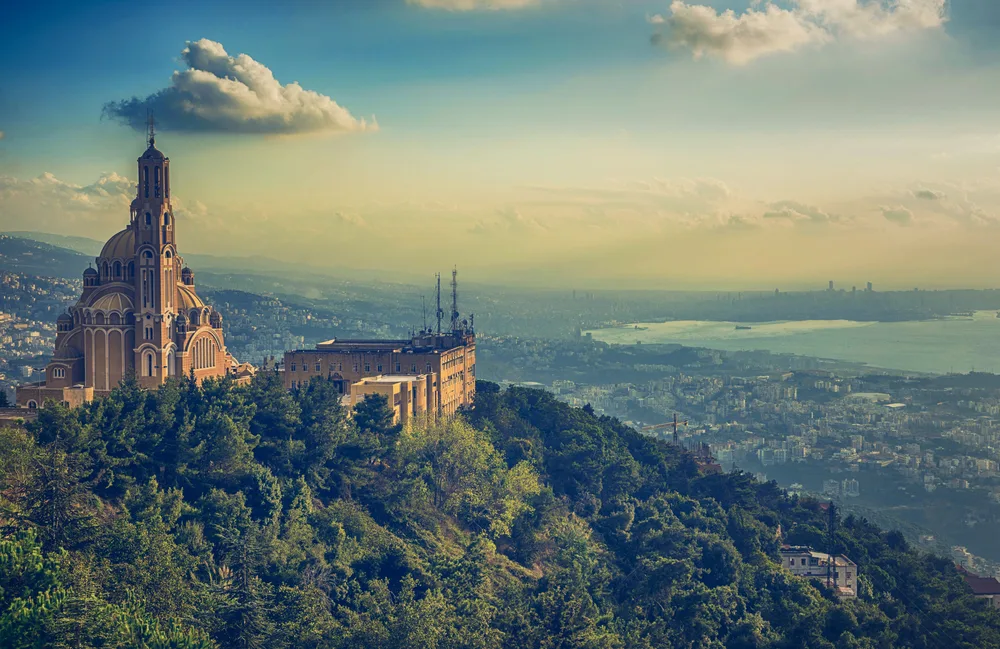
Khaled Bakkora/Shutterstock
Many visitors to Lebanon worry about their safety because of crime and the unstable security situation. Lebanon definitely is not the safest place to visit. On the Global Peace Index, it ranks a lowly #138 out of 163 total countries on the list.
However, for comparison, keep in mind that the United States barely ranks higher than Lebanon, coming in at #129 on the same list. According to official statistics, crime is not the biggest problem in Lebanon.
According to Macrotrends, in 2020, Lebanon only experienced 1.88 incidents of homicide per 100,000 people, which is very low. However, the crisis starting in 2020 has taken a toll.
According to local news, murders surged by 18% in 2022, and suicides also grew drastically. Theft has also grown drastically since the beginning of the crisis. In 2021, theft incidents rose by a whopping 266% compared to the year prior.
As the financial crisis deepens with no sign of ending, people are growing more and more desperate, and robbery is becoming a tempting alternative — especially of foreigners who have more money than impoverished locals.
Robbery
The most common crime you should be aware of when you visit Lebanon is robbery. As local media articles show, robbery is the crime that grew by the most percentage points over the past few years.
All sorts of robberies abound in Lebanon as people are growing increasingly desperate due to the economic crisis. Foreigners are often targeted for robberies because criminals perceive (often rightly) that they have more money than locals, making them better targets.
In its travel advisory, the Canadian government warns, “petty crime has significantly increased since 2020,” the year which marks the worsening of the economic crisis.
Petty theft incidents include pickpocketing and bag snatching. Keep a firm grasp on your valuables when you are out and about. Don’t be too flashy, as that will single you out as a target (and is a bit insensitive towards locals who are going through an economic crisis).
Luggage theft is also prevalent for passengers arriving at Beirut’s international airport. People rifle through the bags of foreign tourists looking for valuables, especially medication.
Keep all valuables in your carry-on, especially important prescription medication — as getting a refill will be very difficult considering Lebanon’s dwindling medical supplies. Invest in a lock for your suitcase.
Besides petty theft incidents, more violent robberies have been reported in Lebanon. Criminals engage in muggings, break-ins, and armed robberies. Sometimes, they pose as security forces to get people to let them into the building or stop their car.
Always ask for ID before opening the door to anyone claiming to be a police officer. Shared taxis are also common fronts for armed robberies, so always call your own cab from a reputable taxi company.
Terrorism
Most foreign governments warn their citizens against traveling to Lebanon because of the risk of terrorism. The Australian government lists “the threat of terrorism” as one of the reasons why the security situation in Lebanon is unstable.
There are a few reasons why there is a higher risk of terrorism in Lebanon. The legacies of the decades-long civil war empowered terrorist groups and promoted sectarianism.
Lebanon’s neighbors certainly don’t help. Lebanon’s eastern border is shared with Syria, and terrorist groups and armed militias frequently cross over.
Many governments, including the UK government, warn that Islamist terrorists carry out attacks that target government objectives as well as places that foreign tourists frequent.
A few years ago, there were terrorist attacks in hotels, malls, and other locations that might attract foreigners. Besides Islamist groups, politically-motivated terrorism is another risk in Lebanon.
Terrorism certainly is an ongoing risk in Lebanon, but it’s important to put the situation in perspective. The risk of terrorism is not evenly distributed across Lebanon geographically.
Risks are strongest in Palestinian refugee camps, near the Syrian border, and in areas controlled by Hezbollah or neighboring those areas. Plus, the rate of terrorist incidents in Lebanon has declined drastically over the past few years.
In 2021, Lebanon only ranked a 3.566 on the Global Terrorism Index, nearly halving its score over the past five years. In its list of recent terrorist incidents, the UK government includes plots foiled by the local government, not attacks that were carried out.
The Lebanese government has ramped up counterterrorism efforts recently, which probably contributed to the lower rate of incidents.
Avoiding Bad Areas
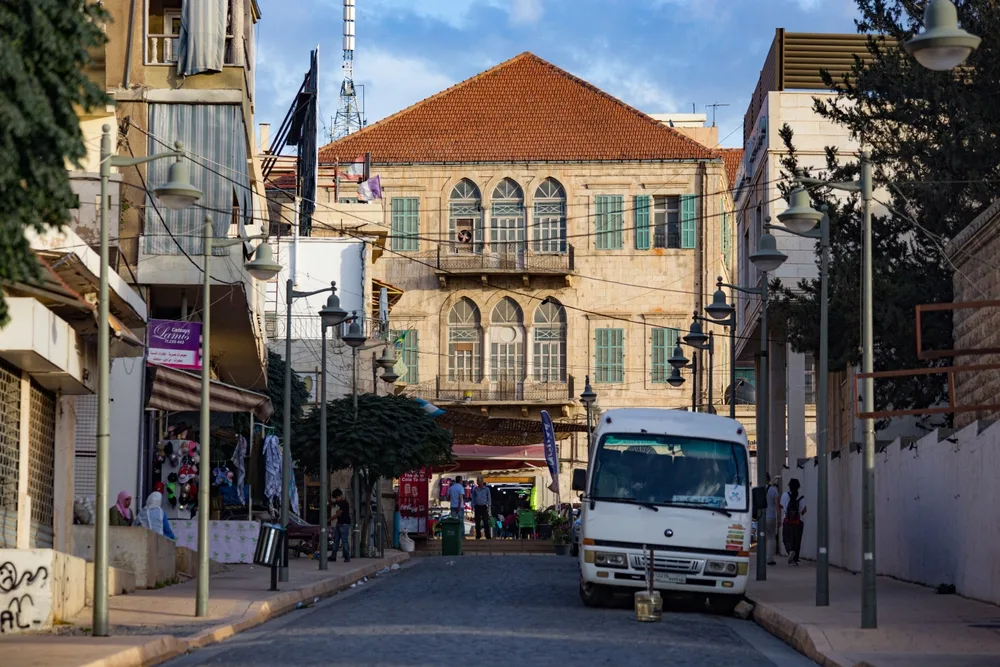
BAALBEK, LEBANON – October 2018: Baalbek in Beqaa valley, old town street of Baalbek, Lebanon/Sun_Shine/Shutterstock
Due to the sporadic security situation in Lebanon, avoiding bad areas is more crucial than ever. Avoid the regions close to the Syrian or Israeli border. The regions near the Syrian border, including the Beqaa Valley, are affected by the war across the border, leading to greater instability.
Lebanon is technically still at war with Israel to the south, which is why you should avoid the region south of the Litani river except for the city of Tyre. Lebanon is home to millions of refugees.
After 1948, a large wave of Palestinian refugees entered the country, and in the past decade, millions of Syrians have come over. Most of these refugees still live in large, lawless refugee camps that prove fertile ground for all kinds of criminal activity, including terrorism.
Avoid visiting the refugee camps. In Beirut, avoid south Beirut, the area between the Camille Chamoun Sports City Stadium and the airport. This region is under the de facto control of Hezbollah.
Most governments have a detailed list of places to avoid in Lebanon on their website, so check your government’s travel advisory before leaving for Lebanon.
Frequently Asked Questions
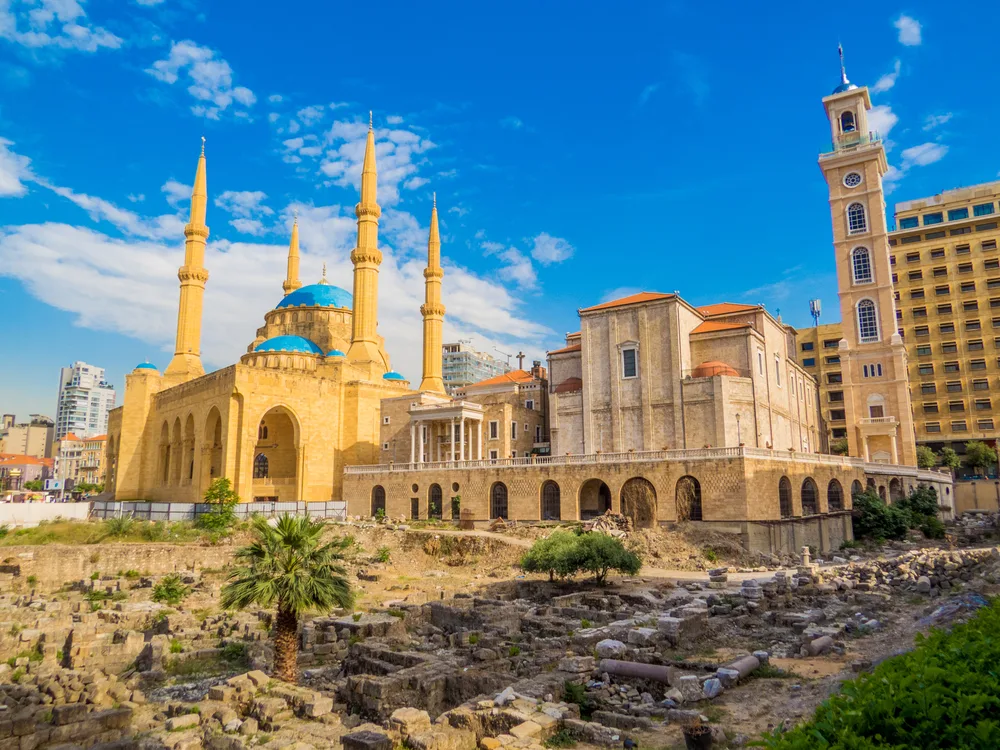
Diego Fiore/Shutterstock
Here are a few other questions you might want to know the answers to if you are visiting Lebanon:
Is Lebanon worth visiting now?
The answer depends on your travel preferences and risk assessment. Lebanon is worth visiting thanks to its amazing history and nature. Although it is one of the safest countries in the Middle East, some tourists find the threat of instability and terrorism too much.
Is Lebanon safe for female travelers?
Female travelers will face more attention than male travelers in the form of street harassment and even officials offering to be “personal tour guides.” Female travelers in Lebanon do need to take extra precautions, but it is safer to visit than some other countries in the region.
Is Beirut worth visiting?
Beirut is worth visiting thanks to its thriving history and vibrant modern culture. It is also one of the safest parts of Lebanon.
Is Beirut safe for solo female travelers?
Beirut is one of the safest cities in the Middle East for solo female travelers. However, women here will experience more harassment than in most places in Europe or North America, so prepare accordingly.
Are the Lebanese friendly?
Most Lebanese are very friendly and take hospitality seriously. Even though they have little, they will do what they can to help guests.
So, Should You Visit Lebanon?
| 📈 Overall murder rate | 1.88 per 100k (2020) |
| 👮♂️ Most common crime | Robbery |
| 🏠 Worst area | Syrian border |
| ❓ Safety tip | Use extreme caution if you go |
Lebanon is a country that has faced more than its fair share of political turmoil in its recent history, which has an effect on the present. The crime rate has risen due to the economic crisis in the country, so we’d avoid the country.



